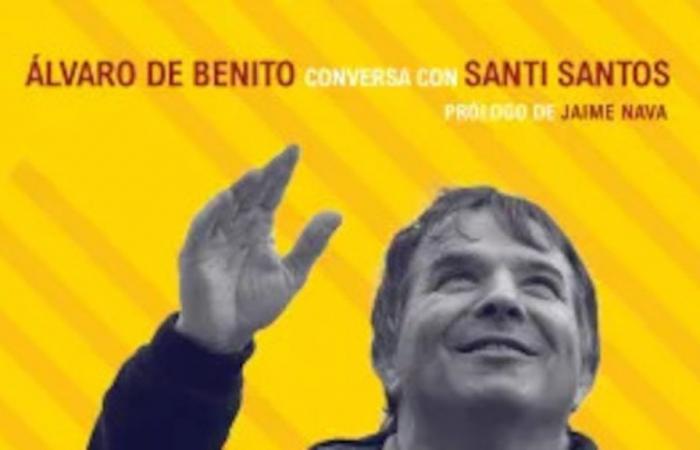Everything that has happened in Spanish rugby in the last decade could easily be written in a book. This is how Álvaro de Benito, ideologist of Sticksa popular digital news outlet that covers everything related to national teams, a regular on the talk shows in this world. The Madrid native has illuminated The Santos Era: a dialogue chronicle of the most successful, dramatic and bizarre period of Spanish rugby, that can be purchased here and in various bookstores on the peninsula, the product of hours of conversation with the penultimate men’s coach, Santiago Santosa character who has been at the center of everything good and bad that has happened in the last ten years.
It is a useful book that helps navigate the tidal wave of that eternal sleeping giant at a stage in which he was close to awakening. Santos generally speaks openly, although certain relevant silences can be discerned, and he draws an administrative and sporting panorama that is often conflicting, if not directly in conflict. His narrative portrays a Federation that is sometimes aimless, sometimes wanting but not being able to. Names with their own chapter in the panorama of Spanish rugby parade through the scene: Alfonso Feijoo and his son Pablo, Gavin van den Berg, Tiki Inchausti, Kawa Leauma, Epalza, More, Sevi, Iordachescu…
The most striking thing is concentrated in the period 2018-2023, when Spain lost two consecutive World Cup qualifications due to bureaucratic problems. “I believe that Epalza, who was the one who was most affected by this – I don’t know if Alfonso had something to do with it or not – did make some calls to Rugby Europe and at least one email to try to change that. What Epalza told us is that Rugby Europe told him that there was no need to worry about the referee being Romanian, that how could we think that the referee was going to carry out a partial refereeing even though his team was playing in the World Cup,” he says. the tragedy of Heysel and that infamous appointment of Iordachescu to referee it. “Belgium did not give us any logistical facilities and made training difficult. There was a lot of tension before the game. We didn’t like playing in Little Heysel. Playing on a small, muddy field was not fun for us. Playing with a Romanian referee seemed crazy to us,” he says of the run-up to that match and how the shadow of eligibility, with the Federation checking documentation before their dispute, was already hanging over the team. “The human factor is terrifying,” he notes of the hours after the disaster, with raw scenes like Dan Snee crossing the world back to New Zealand alone on a plane digesting the disappointment.
From there to the second episode of the farce, the expulsion in 2023 after winning, this time, the place in the field due to the ‘Van den Berg case’. “Here it is clear once again that the eligibility system we use does not work well,” Santos sums up the Federation’s futile attempts to avoid the repetition of the irregularities condemned in 2018. An event that ends up precipitating a change of tenants in the RFER, from Feijoo to ‘Hansen’. The period in which his departure from a national team will be forged in which, he assures, he is betting on an Argentinization that did not convince him. Whatever happens in it, there will be a certain imprint of a figure as polarizing as it is central in the sporting evolution of recent years.which is worth knowing through this book.
Follow the Diario AS channel on WhatsApp, where you will find all the sport in one place: the latest news of the day, the agenda with the latest news on the most important sporting events, the most outstanding images, the opinion of the best AS writers, reports, videos, and some humour from time to time.


